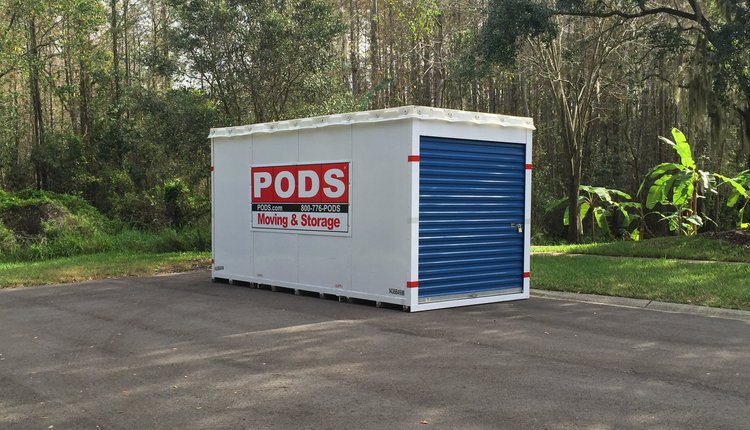If you have been a reader of PARCEL for some time you are aware of my work and my passion for the industry. Every day I begin my morning by reviewing the articles on UPS, FedEx, USPS, DHL, TNT, Ontrac et. al. that have occurred in the last 24 hours by using Google Alerts. There are some things that I have seen that I think the readers should be made aware of. Please be assured that my intent is to provide some insight and with the information you can make some prudent decisions on how to manage your business.
Robert and Thomas Hagan, formerly New York City’s largest UPS Store franchisee, sued UPS and several Manhattan UPS Store locations, claiming customers were getting overcharged.
I have done work for some of the independent shipping store owners and this I know is true. They make every effort to enter exact information about a package weight and the package dimensions into a carriers system, because if there is an error they can’t go back to their customer and try to collect the difference. I also know that these mom and pop shops operate on a very slim margin and they check every line of their invoices. I am forever hearing anecdotal stories of discrepancies between the weight tendered to the carrier and the weight billed later by the carrier and the dimensions of a package as entered into a carriers system and the “corrected” dimensions sent back with the invoice.
I have written in the past about the inherent vice that occurs in an automated environment where one is trying to move millions of parcels in a short amount of time. Stuff happens, and from time to time there are errors in weight and dimensions that occur not by the shipper but by the carrier trying to verify the weight and dimensions in an automated way.
Well guess what. UPS notified all The UPS Store franchises that as of July 15, 2015 The UPS Stores will receive a waiver on the dimensional weight rule change that went into effect in January, 2015. What this means; The UPS Stores are no longer subject to being charged dimensional weight on ground shipments less than 3 cubic feet. They will be billed for actual weight only.
The above waiver on dimensional weight was also extended to Office Depot and Staples stores.
My supposition is that the lawyers at the jolly brown giant may see potential exposure on the dimensional issue and are now trying to mitigate some of that risk. It’s also possible that UPS may have seen a conversion of shipments under 3 cubic feet to the USPS because with the January rule change the USPS becomes in many cases the optimum combination of price and service for transactions under 5 pounds. If I recall the UPS store dos offer the option of Priority Mail. In any event you need to be checking the validity of carrier invoices if they are charging you reweigh or corrected dimensions. They can be wrong. You or your freight bill audit company need to have adequate controls in place to capture and verify the discrepancies.
On May 19 the story broke that UPS will pay more than $25 million to settle charges it submitted false claims to the federal government in connection with delivery of Next Day Air overnight packages. What was this all about? Well the government sued UPS for either falsifying the delivery times and or entering into the shipment record codes that precluded the government from filing claims for late delivery under the service guarantee.
Here is how it was reported: UPS concealed the company's repeated failure to meet those delivery guarantees from 2004 to 2014, federal prosecutors said. The subterfuge allegedly prevented government customers for seeking refunds for late deliveries. Government officials charged that UPS knowingly recorded inaccurate delivery times on packages to make it appear that the shipments had been delivered on time. Additionally, UPS personnel knowingly used inapplicable "exception codes" to excuse late delivery — including "security delay," "customer not in" or "business closed," government officials charged.
UPS has admitted no guilt but has settled with the government in the case.
UPS said the company negotiated a settlement "to avoid lengthy and costly litigation," but continued to disagree with the government's position. The company, which did not acknowledge any liability in the settlement, will pay $25 million to the Department of Justice and $740,000 to the State of New Jersey.
The great irony was that while this was going on I my son called me from a receiving dock at a hotel because he was awaiting an incoming shipment for a trade show and he needed my help because the UPS website showed his package conveniently delivered at precisely 10:30 but the package was not yet in fact delivered. I sent an email to a senior exec at UPS in Atlanta for help and I expected a call from the station manager at the delivering station. Instead I got a call from a lawyer at UPS. Now I understand why. Again UPS does will deny there is any way to tinker with delivery times and or exception codes and it’s against company policy to falsify shipping documentation. The fact is that there is a lot of pressure on drivers to “make service’ and the supervisors are penalized on service performance, so there may be some wink and nod stuff going on in the trenches that senior management would prefer not to acknowledge. I’m not accusing anyone of anything here, I’m just saying.
Again the message is that you need to have a process whereby you, from time to time, correlate the delivery times on at least your incoming shipments and the times being reported be the carriers on your bills for those shipments.
In another case of alleged misapplication of information Federal Express Corp. agreed to pay $21.5 million to settle a class action accusing it of charging customers more than $5 million in bogus residential delivery surcharges for packages sent to businesses and government buildings, according to a filing in Tennessee federal court.
The suit accused the shipping giant of committing mail and wire fraud and breaching its contract with customers by charging more than $5 million in bogus surcharges. Party representatives announced earlier that they had reached a settlement.
Do you have a method and means to verify that invoices coming in that have a residential fee charged were in fact going to a residence? If I recall correctly in this case there were shipments going to Fedex headquarters in Memphis where the shipper was charged a residential surcharge for the transaction. The driver must know that some employees do sleep there, and therefore the address is eligible for a residential fee.
Lastly a suit that has not yet been filed but may be lurking out there, is in the area of fallacious or misstated address corrections. If you have been through the process of auditing your carrier address corrections you may have stumbled upon this, where the correct address was tendered but the carrier corrected the address to the exact same address you sent the transactions to, and then billed you $12.50 for the pleasure of doing so. You need to be auditing those address corrections folks. There is big money being charged and not all of it is valid. My experience is that most shippers just ignore address corrections and let them go because they don’t have enough time to check. If that’s the case then outsource the process to a firm that will do it for a percentage of what they recover.
My time in operations informs me that pressure is put on the drivers each and every day to identify a certain number of shipments as residences, to enter in a certain number of address corrections on their route, and to always make service, no matter what it takes. The drivers are human, as are their supervisors, and from time to time folks may make bad decisions to keep their jobs.
It is important that you trust your carriers but based on this information you need to make sure you have a robust process to verify the accuracy of your invoices. If you need some recommendations on freight audit and payment companies you can reach me at 407-342-3825.











